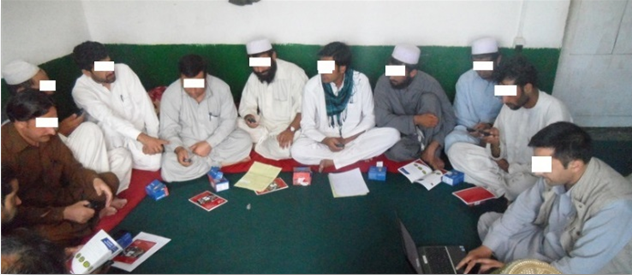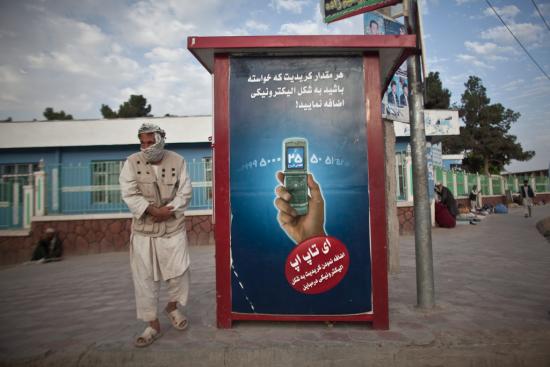In developing economies, only one in five adults saves money in a formal account. However, through the rapid spread of mobile money, the world has seen a major drop in the number of “unbanked” adults, creating new opportunities for financial inclusion. A new study finds that mobile phones — and insights from behavioral economics — can facilitate savings, effectively reaching the world’s rural poor through the devices they are already using.
In “Why Do Defaults Affect Behavior? Experimental Evidence from Afghanistan,” forthcoming in American Economic Review, three researchers, including Joshua Blumenstock, Assistant Professor at the UC Berkeley School of Information, found that nudging employees to save worked in Afghanistan, one of the world’s least financially developed countries. The study was co-authored by Tarek Ghani of Olin Business School at Washington University St. Louis and Michael Callen of Rady School of Management at the University of California, San Diego. The researchers worked in collaboration with Roshan, Afghanistan’s largest mobile phone operator. Their product, “M-Pasandaz” (“Pasandaz” means savings in Dari, the most common language spoken in Afghanistan), is a mobile money-based savings wallet that works with “M-Paisa,” Afghanistan’s largest mobile money network at the time of the study.

The study involved 949 Roshan employees, who already received their salary through mobile money and were distributed across the country in a wide range of positions from nonprofessional to highly-skilled. Each employee was randomly assigned to have either 0% or 5% of his or her salary automatically directed into a savings account. Separately, each employee was randomly assigned a financial incentive to save, with one-third of employees receiving a 50% match on all contributions; one third receiving a 25% match, and the final third receiving no match. This design allowed the researchers to compare the effect of ‘nudging’ employees with defaults and of incentivizing them with matches, and to experimentally estimate how defaults affect employee decisions and savings.
“Most of the work I do focuses on ‘big’ data and machine learning,” said Joshua Blumenstock, “but this study was very different. We worked with a relatively small population, and the real ‘data science’ involved careful experimental design, instead of bleeding-edge analytics.”
In Afghanistan, distrust of financial institutions is high and only four percent of the population saves with a bank. The striking results of this research offer a glimpse of how employers and governments can help people save, even in the most challenging, un-banked environments.
The authors found that when employees were randomly assigned — by default — to automatically contribute 5% of their salary to savings, they were much more likely to participate than those who had to actively enroll of their own accord. In a companion piece authored for Harvard Business Review the researchers wrote: “This effect — a 40 percentage point increase in participation — is nearly identical to the effects observed in countries like the U.S. and Europe, and was roughly as large as the increase in savings observed when we offered a hefty financial incentive (a 50% match) for employees to save. Over six months, the average employee who was enrolled to save by default accumulated an extra half month's salary in his or her savings account, relative to employees who had to opt-in.”
“At a more personal level, it was rewarding to see that the product we tested actually made a difference to people,” said Blumenstock. “Data science can often be fairly ‘hands-off,’ involving the analysis of data generated through systems over which you have no control. But here we spent a lot of time with the people in the study, and — not just in the data, but through personal stories — saw how helping people to save could improve other aspects of their lives.”
At the UC Berkeley I School, Professor Blumenstock directs the Data–Intensive Development Lab. His research lies at the intersection of machine learning and development economics, and focuses on using novel data and methods to better understand the causes and consequences of global poverty.
“The project embodies a lot of what I like about the I School,” Blumenstock said. “It was a real interdisciplinary collaboration between a data scientist (myself), an economist (Mike Callen), and a business school professor (Tarek Ghani), and touched on topics ranging from behavioral economics and consumer finance to ICTD [Information and Communication Technologies and Development] and network analytics … the goal was always to do something that would actually be useful to people living on the ground in Afghanistan.”













